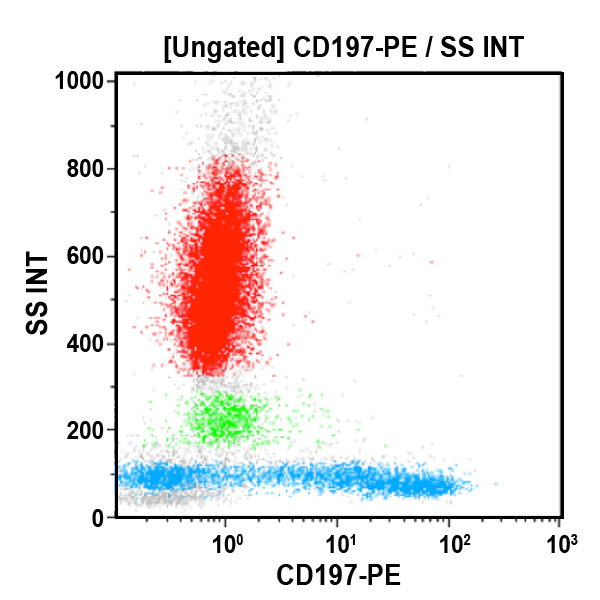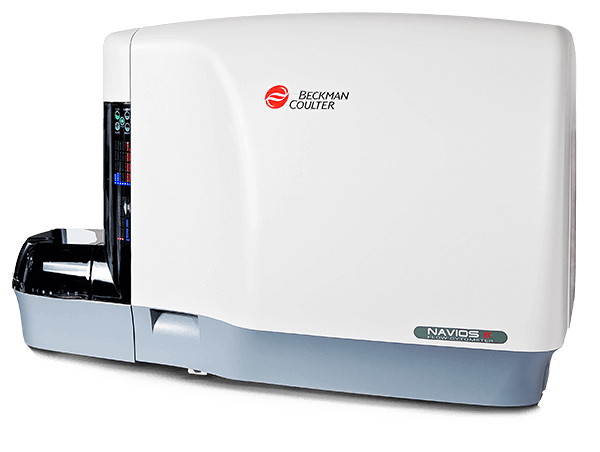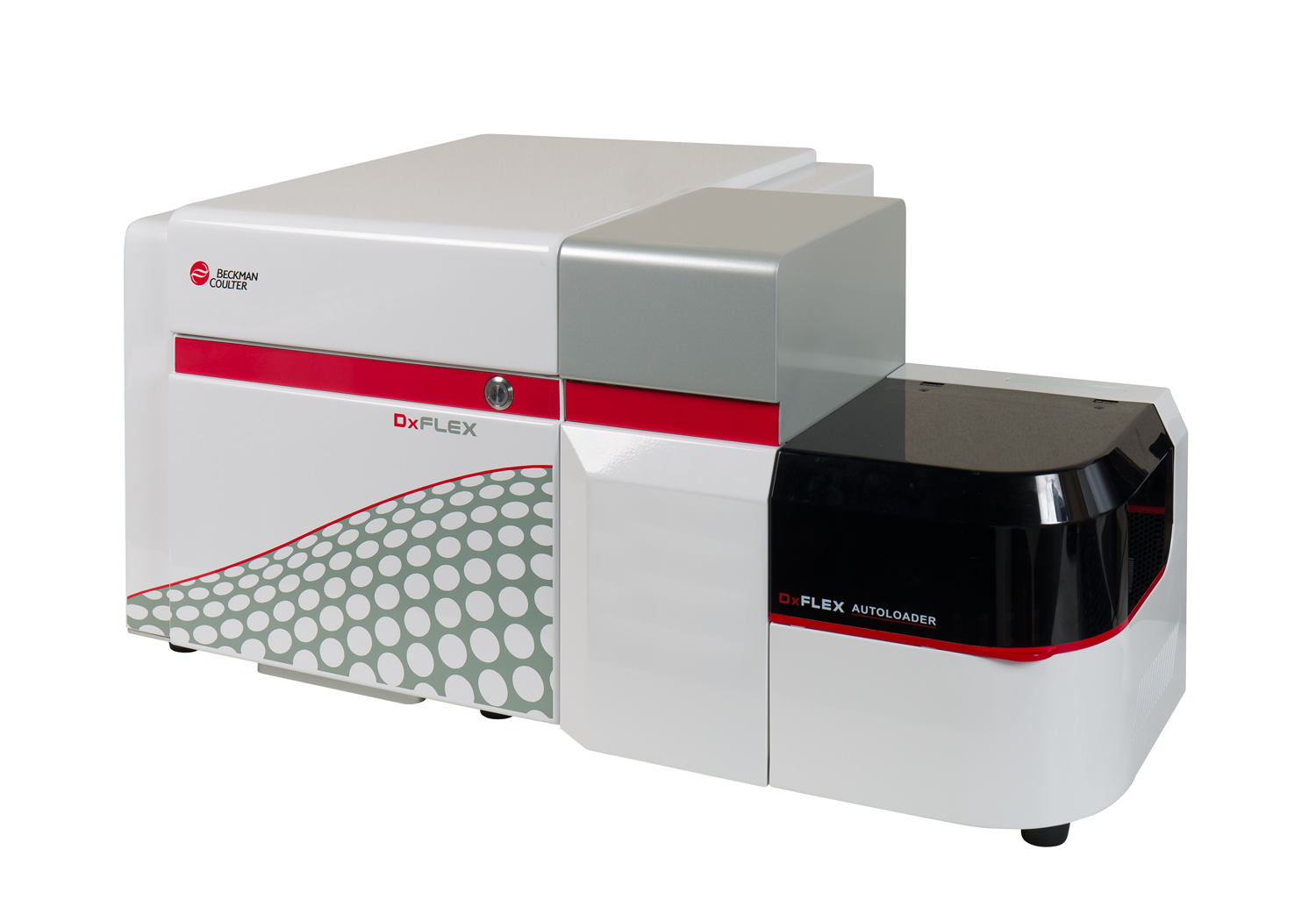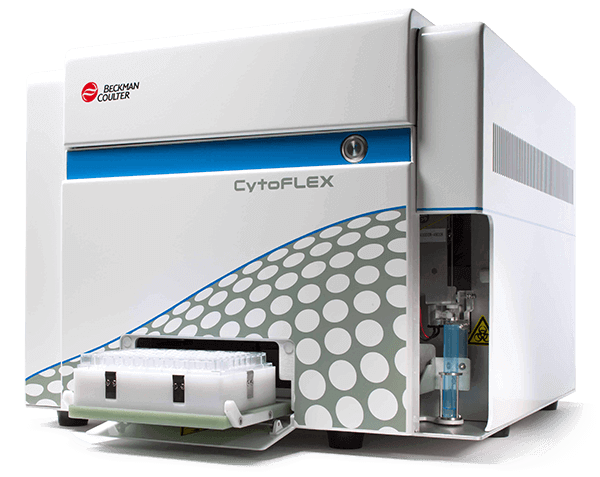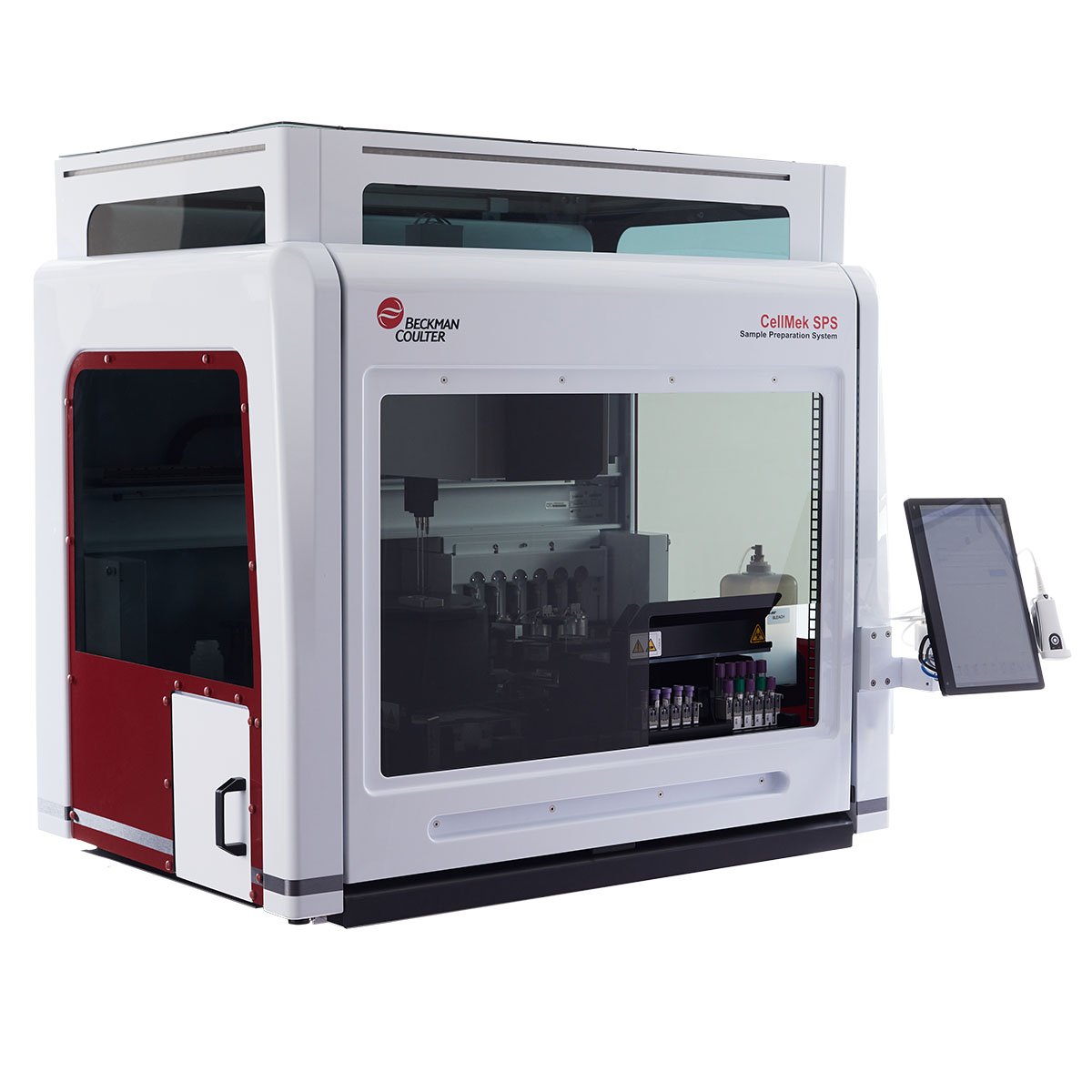CD197 (CCR7) Antibodies
CD197 (CCR7) is G protein-coupled receptors (GPCR) with seven transmembrane receptors. It binds CCL19 and CCL21. CCR7 and its ligands link innate and adaptive immunity through their effects on interactions between T cells and dendritic cells. The chemokine receptor CCR7 plays a pivotal role in the homing of naïve T cells and regulatory T cells to secondary lymphoid organs, and the migration of dendritic cells into afferent lymphatic vessels. Naïve T cells enter the lymph node through high endothelial venules, which express CCL21. Dendritic cells and macrophages enter the lymph node through afferent lymphatics. The encounter of T cells and dendritic cells in the T cell zone is CCR7‑dependent. In addition, during immunological surveillance, B lymphocytes recirculate between B-cell-rich compartments (follicles or B zones) in secondary lymphoid organs, surveying for antigen. After antigen binding, B cells move to the boundary of B and T zones to interact with T-helper cells; this B cell migration is directed by CCR7 and its ligands. CCR7-positive cancer cell expression has been associated with lymph node metastasis. By bringing together T cells, B cells, and DCs to form functional microenvironments in secondary lymphoid organs, CCR7 has been identified as a major homing receptor and important regulator for initiating an antigen-specific immune response.
| Clone: G043H7 | Isotype: IgG2a Mouse |

